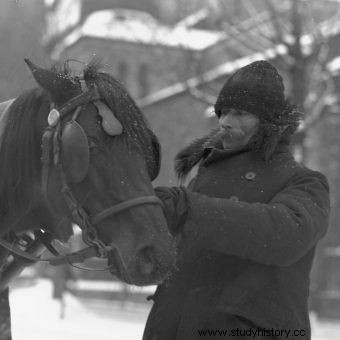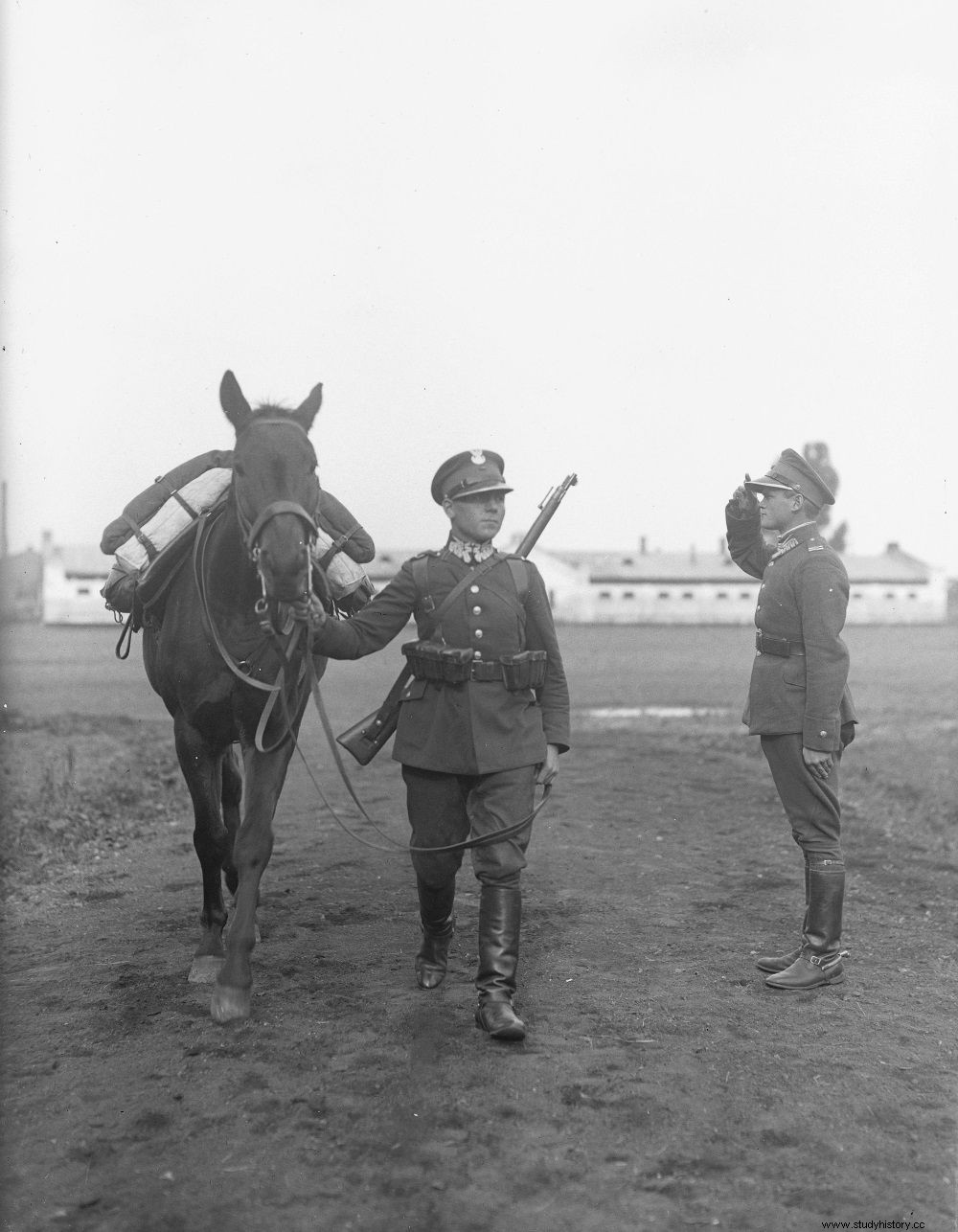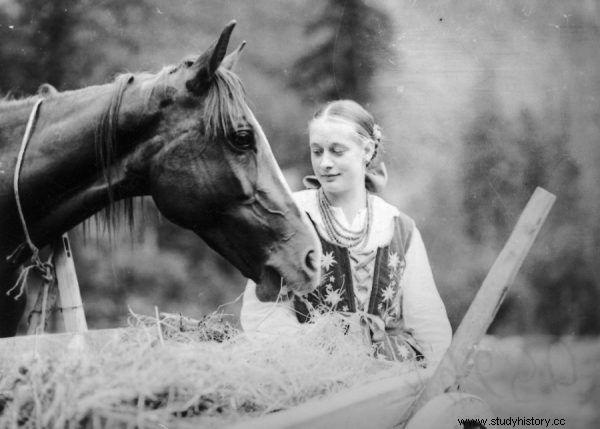Horse sausages and sausages. Mare sausage. And seven stalls in only one city, trading only horse products. Where does this passion come from?
Konin was invariably associated with poverty in Poland. As early as 1906, "Nowy Dzwonek", published in the capital of Lesser Poland, reported:
They sell horse meat in Lviv, Krakow and, apparently, in Tarnow. In November, 150 horses were sent for slaughter in Lviv. Due to the high prices of beef, pork and veal, poor people start to eat horse meat.

A cabbie holding a horse by the bridle. (photo:public domain)
During the First World War, the German occupation authorities even thought of ... introducing an official state monopoly that would concentrate the entire horse meat trade and control the prices in it.
A quarter of a million kilos a year
During the independence years, horses were also eaten, mainly when the family could not afford any alternative.
In 1928 the periodical "Nasza Ziemia" reported, with a hint of sensation and disgust:"Horses eat in Krakow." Apparently, 1,000 of these animals were officially slaughtered for food within a year.

It was similar in Łódź, where in 1937 20,000 kilograms of horse meat were consumed per month - or approximately 90 animals.
Hearts, cold cuts and sausages
According to "Rola. An illustrated non-partisan weekly for instruction and entertainment ”, horse meat was used to make sausages, cold cuts and sausages, and there were seven butchers in the town officially selling these products.
In dozens of others, horse meat was also circulated, but without the customers' knowledge. And if anyone was happy about this fact, it must be ... only animal rights activists.

Young highlander with a horse (photo:public domain)
Even before the Great War, one of the societies working for this idea organized special performances in Berlin, during which passersby were encouraged to eat horse meat. All this is so that exhausted workhorses "are sold to slaughter in slaughterhouses, and they do not have to drag with the driver's whip until they breathe".
Humanitarian? Decide for yourself.
***
Sources:
The article is based on the sources and literature used by the author while working on the book "Twenty years from the kitchen. Culinary history of pre-war Poland ” ,
